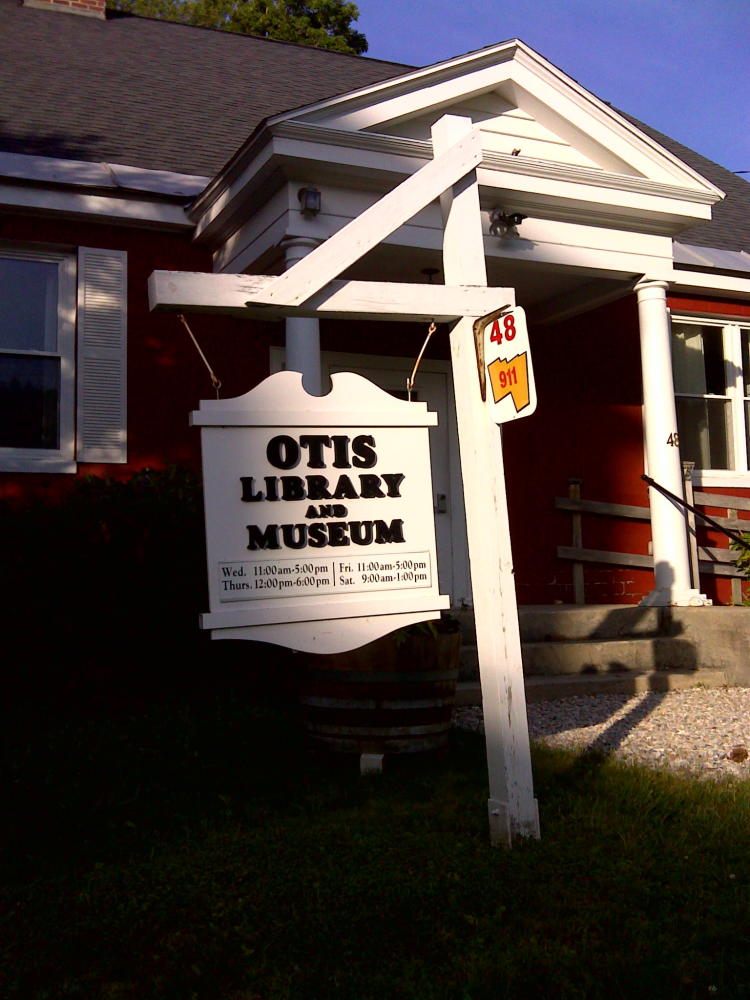Bringing high-speed internet to rural western Massachusetts has not been easy. A recent dustup between a group of towns and a quasi-state agency threatens to slow the process. It’s turning out that the so-called “last mile” of the project is turning into the longest.
On a recent afternoon, it’s quiet at the Otis Library, but staff say in a few hours their half dozen computer terminals will be busy. It’s one of the few places in town with high-speed internet and Wi-Fi. Librarian Lois Hall.
“They say if you come through at midnight, you can still see cars out there with their lights on and they’re working because it’s the only place where they can get Wi-Fi,” Hall says.
For years, local governments have been trying to get broadband internet to rural homes. Wired West, is a collaborative of rural towns seeking to bring and operate these networks through subscriber fees , but it’s been controversial. This fall, Otis opted to leave the group and work directly with the Massachusetts Broadband Institute, or MBI, which is overseeing internet expansion for the state. Town Administrator Chris Morris says the idea of Wired West possibly owning each town’s network, and having control of it, was a problem for Otis residents.
“This is a really substantial, multi-million dollar investment on the town’s part,” Morris says. “There was a feeling that if we’re going to assume all the financial risk for this, then we should be retaining the assets.
Network ownership is also a problem for MBI , which wants towns to retain ownership of their own networks.. This month, the agency sent a letter to Wired West member towns urging them not to sign a final agreement with the collaborative. Steve Nelson is a Wired West board member from Berkshire County.
“The towns will own the network,” Nelson says. “But they’re owning it in a cooperative fashion. It’s a shared ownership, but they own individual pieces separately.”
Another issue is money. Wired West wants a percentage of subscriber fees to help pay for project construction. MBI’s Director Eric Nakajima says may not be enough based on the number of projected subscribers.
“The smartest thing to do is for townspeople to assume that either through their property taxes or through their monthly subscription bill, there’s going to have to be some nugget on that bill, one way or the other, that pays down the debt,” Nakajima says. “That’s undoubtedly how it’s going to have to be financed.”
But Nelson of Wired West, says their plan has been reviewed by a consultant.
“They said that we have a well-structured plan and that it was reasonable to describe our business, and that it will work.” Nelson says. “MBI is just substituting its judgement for that without any basis in fact.”
Nelson says the dispute feels like another case of state government from eastern Mass. trying to make decisions for the western part of the state. Nakajima disputes that notion, saying he’s from Amherst and a number of board members are from western Mass. He says MBI has been expressing concerns over the plan for months, but the Wired West business plan didn’t end up addressing them. Nakajima says despite all of the differences, a compromise is still possible.
“We’re hoping that we’ll get back a constructive response that addresses some of the concerns we have and tries to see how they (Wired West) can incorporate our concerns about local control, mitigating financial risk and other concerns,” Nakajima says.
As for Otis, Town Administrator Morris says the decision to leave wired west feels like the right one.
“Personally, I feel like MBI is doing the right thing in terms of cautioning towns about proceeding with a venture in which they will essentially have so little control and yet all of the debt obligation,” Morris says.
The Massachusetts Broadband Institute is holding public meetings this week in Greenfield and Worthington to provide an update on the project.
